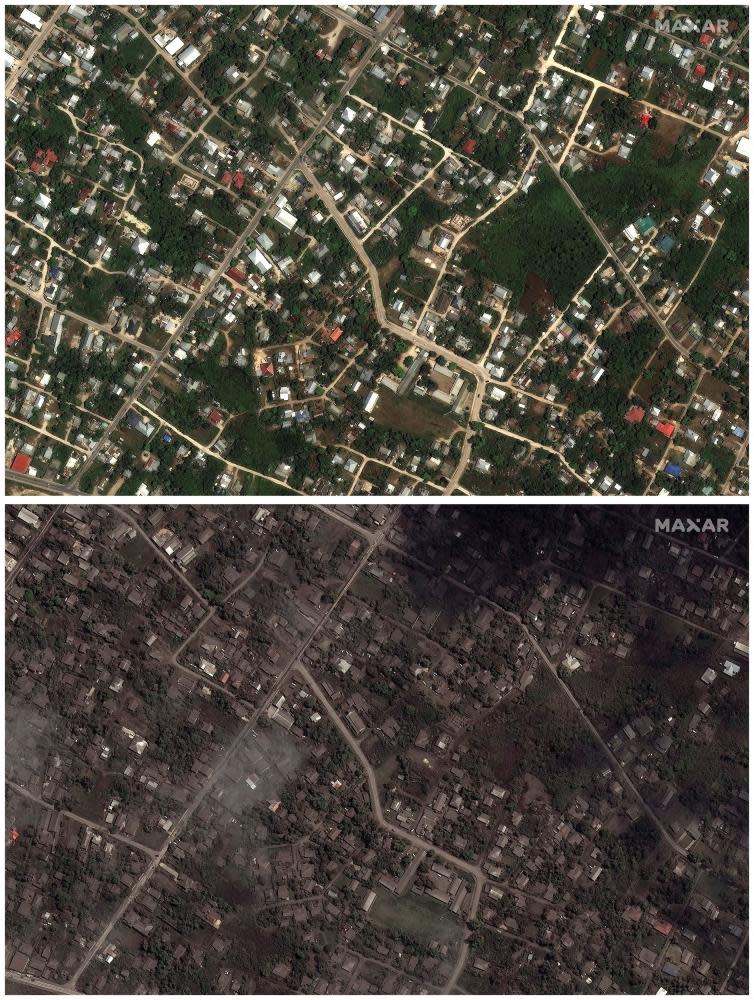Tonga says volcanic eruption and tsunami an ‘unprecedented disaster’
Government issues first official update since huge blast on Saturday, saying death toll could rise
Tonga is facing an “unprecedented disaster” from a massive volcanic eruption that covered the nation in ash and 15-metre tsunami waves that destroyed almost all the homes on two small islands, the government has said.
Hampered by a communications breakdown caused by the severing of a major undersea cable, authorities had not released an official update since the blast on Saturday, when the Pacific island nation was shaken by what may have been the largest volcanic event in three decades.
Since then, information on the scale of the devastation had mostly come from reconnaissance aircraft.
Related: Tonga volcano: a visual guide to the eruption and its aftermath
On Tuesday, the office of Tonga’s prime minister released a statement saying it had confirmed the deaths of three people, although the toll could rise. The government has still not managed to make contact with several inhabited islands.
Prime minister Siaosi Sovaleni’s office said every home on Mango island, where about 50 people live, had been destroyed, and only two houses remained on Fonoifua.
A statement described the eruption of the Hunga Tonga-Hunga Ha‘apai undersea volcano, 40 miles (65km) north of Tonga’s capital, as an “unprecedented disaster”.

A “volcanic mushroom plume” had reached the stratosphere and extended to cover the entirety of Tonga’s roughly 170 islands, where more than 100,000 people live.
Sovaleni’s office announced the deaths of a 65-year-old woman on Mango island and a 49-year-old man on Nomuka, in addition to Angela Glover, a British woman living in Tonga whose body was found on Monday.
The government said the Tongan navy had deployed with health teams and water, food and tents to outlying islands.
Earlier, aerial photos taken by a New Zealand defence force showed Nomuka island blanketed in black and grey ash.
Meanwhile, satellite imagery analysed by the UN showed similar scenes in Kolomotu’a, Tongatapu, and Fafaa village, Kolofo’ou. While some buildings remain standing, others appear to have collapsed, and the entire landscape is coated with ash.
At Fua’amotu international airport, the runway appears to have been inundated and is partly covered by either ash or dirt. Other satellite images show that flooding came in several blocks from the coastline.
Tongans around the world may be forced to wait weeks for regular contact to resume after testing confirmed that the cable connecting the islands to the outside world was cut in at least one place.
The New Zealand foreign minister, Nanaia Mahuta, said on Tuesday the ash could cause problems for getting aid into the country via plane.
“Images show ashfall on the Nuku’alofa airport runway that must be cleared before a C-130 Hercules flight with humanitarian assistance can land,” she said.
The Australian defence force also sent a surveillance plane on Monday, to assess damage to critical infrastructure such as roads, ports and power lines.

 Yahoo Movies
Yahoo Movies 
